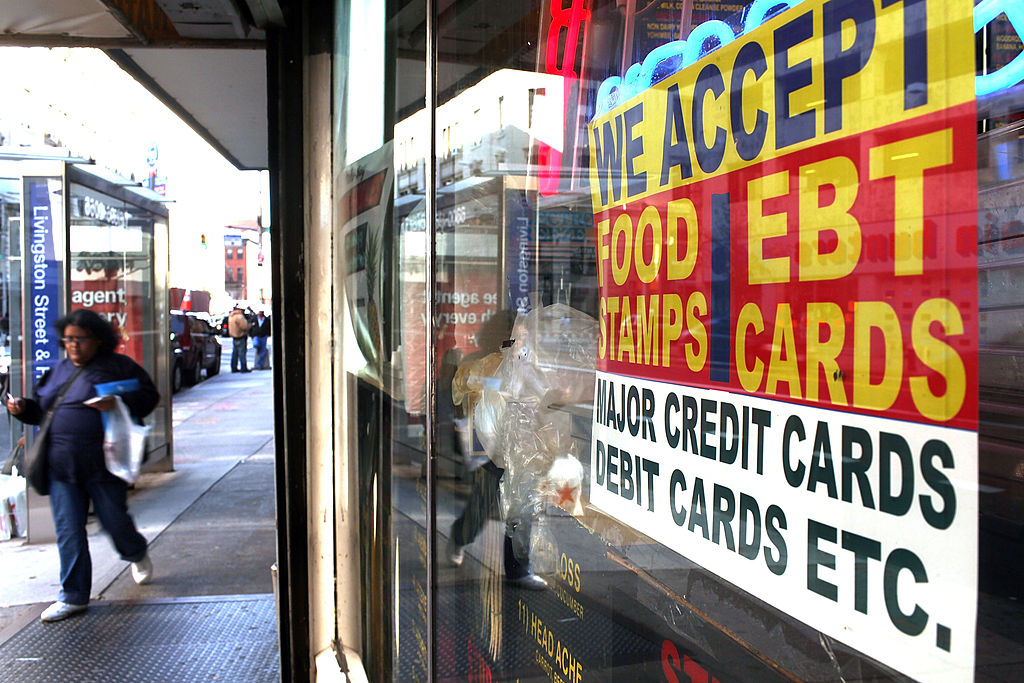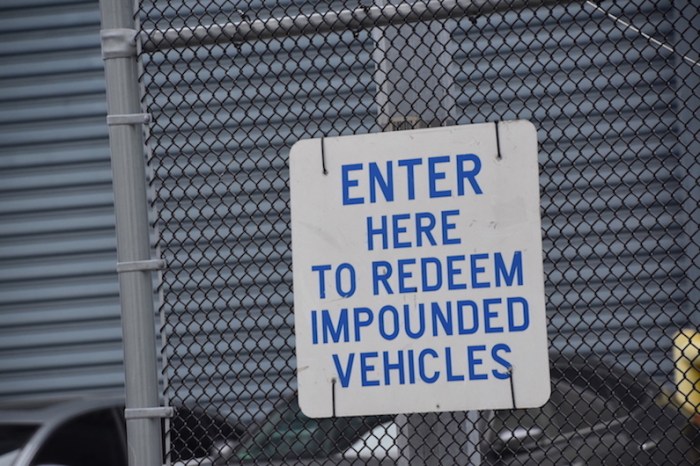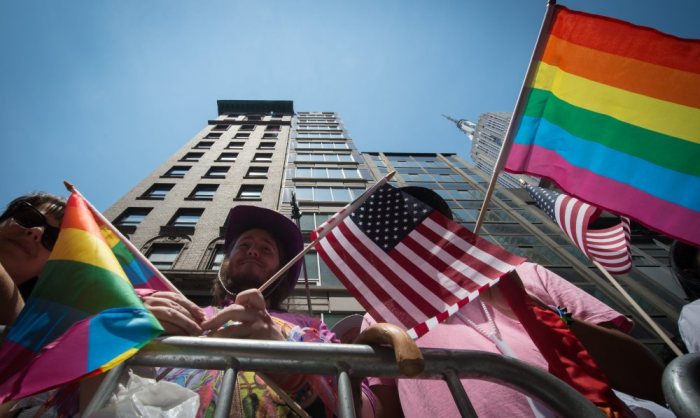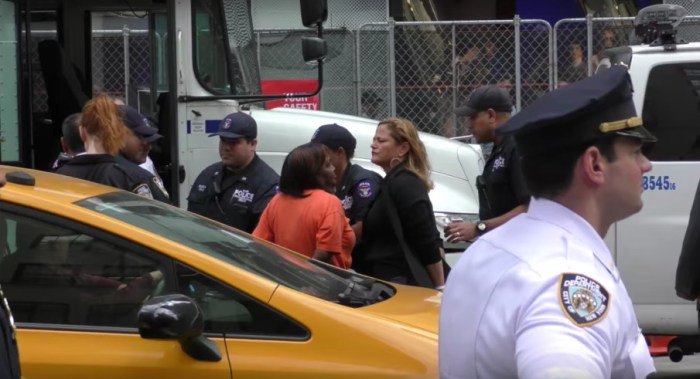City Council members introduced a set of oversight bills on Monday meant to change the experience of those going to New York City food stamps and other public assistance or welfare offices.
On Dec. 7, police forcefully arrested Jazmine Headley and ripped her 1-year-old child out of her arms at a Human Resources Administration (HRA) office, shedding light on larger issues in the system. Headley was arrested after sitting on the floor at the office, where she had been waiting for four hours to find out why her son’s benefits were cut off. (It was a mistake, officials said, because of a technical glitch that prevented state and city systems from “talking to each other.”)
On average, New Yorkers wait for 2.78 hours at New York City food stamps (or SNAP) centers, and 3.13 hours at Job Centers, according to a new report by the Safety Net Project of the Urban Justice Center. On its website, the HRA says average wait times are 51 minutes at Job Centers and 47 minutes at SNAP Centers.
The Safety Net Project surveyed SNAP and Public Assistance recipients across the five boroughs and found that New Yorkers aren’t just dealing with long waits at these HRA offices. They’re also dealing with negative employees, neglected phone lines and rampant documentation errors.

“It’s not just the fact that I was arrested,” Headley told the City Council at a Monday Committee on General Welfare hearing. “It was the harsh way that I was treated by people who are supposed to help me.”
Thirty four percent of respondents reported that HRA workers “always” or “often” spoke to them in a “mean, hostile or nasty manner at Public Assistance Centers,” per the report. Another 33 percent said they’ve had such an experience “sometimes.”
HRA policy says that phone calls must be returned within 36 hours, but 64 percent of calls were either not returned or had connection and voicemail issues, according to HRA’s own internal audits.
More than 25 percent of SNAP applicants/recipients and more than 50 percent of public assistance applicants/recipients said an HRA worker had lost paperwork that they submitted in 2017, the Safety Net Project report found.
Those going to New York City food stamps and public assistance centers in the Bronx have the worst experiences because of overloaded and underserved offices. While the Bronx has the highest percentage of SNAP recipients, it also has fewer SNAP centers than Manhattan or Queens.
How will City Council bills change NYC food stamps, public assistance centers
The set of bills introduced by the New York City Council would require new reporting, training and accountability for the HRA, which is the city agency that runs these food stamps and public assistance offices.
The oversight package includes actions that would require HRA, the Department of Social Services and the NYPD to issue quarterly reports on any use of force inside these offices; require full-time social workers at every office and institute de-escalation training for those that work in these Job and SNAP centers.
Other bills address call for a sanitary space for children at HRA centers, a client satisfaction survey for each individual checking in at a center and a new system that allows clients to schedule appointments online and over the phone. Speaker Corey Johnson is behind one bill that would create an Office of the Special Handler to establish a system for DSS to receive comments, questions and complaints.
“Every person who walks into an HRA office deserves to be treated with compassion and respect, full stop,” said Council Member Stephen Levin in a statement. “The recent incident faced by Ms. Jazmine Headley brought to light serious gaps in our city’s social services system and the need for top to bottom client improvements.”
HRA officials said at the hearing that they will consider the Safety Net Project’s reccomendations and that they look forward to working with the City Council to make system-wide reforms.


























